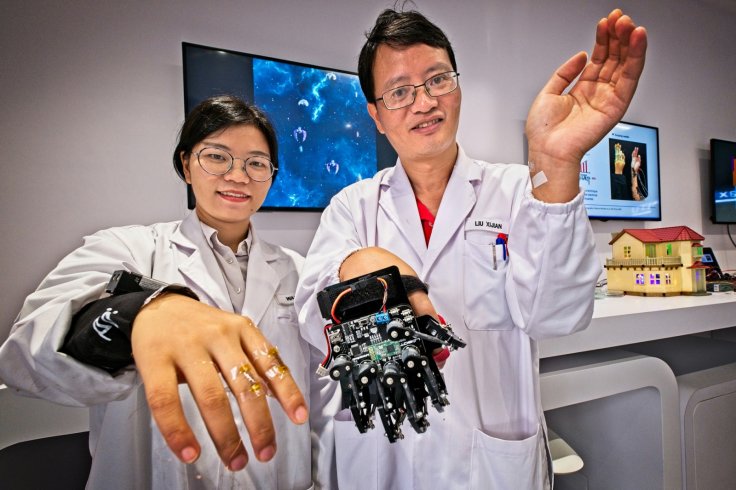
Nanyang Technological University (NTU) collaborated with Germany's Max Planck Institute of Colloids and Interfaces (MPICI) to launch a joint lab to conduct research in artificial senses and develop innovative robotics and healthcare solutions, which includes skin-like wearable devices that monitor health and environmental conditions through smart sensors, as well as enhance prosthetic devices with 'artificial sensing' capabilities.
As per NTU, this would allow prosthetic devices to restore rudimentary sensory functions for patients, who have lost certain senses after a life-threatening accident.
The new Max Planck-NTU Joint Laboratory for Artificial Senses will be working on 'skin' electronics, biomedical engineering, and artificial intelligence (AI) and they will also look into developing robotic technologies with sensory capabilities, for example, robots equipped with sensing feedback can provide customised care by making some adjustments which will be suitable for the patients.
The partnership between NTU and the German institute will also include research to extend human senses beyond their natural capabilities, such as developing new sensory technology that will help to see or hear radar frequencies or microwaves, smell infections or genetic patterns or even sense an earthquake.
NTU President Professor Subra Suresh said that the partnership "aims to take robotics and medical technologies to the next level by combining human senses, AI and machine learning. This will be beneficial for various industries, especially for healthcare as cutting-edge medical devices could reduce misdiagnosis, and allow for customised precision medicine to deliver faster, better care to patients. This partnership is also a reflection of NTU's continuous drive towards research excellence where we work closely with leading international partners to develop innovative solutions that will benefit humanity."
MPICI is part of the prestigious Max Planck Society for the Advancement of Sciences that was established in 1911, the Society is one of the world's leading research organisations and the jointly launched lab is MPICI's first venture in Southeast Asia.
The Head of the Section of Natural Sciences at the Max Planck Society, Professor Peter Fratzl said, "Multisensing with cheap and robust sensors followed by decentral neuronal data densification will allow devices which act as 'intelligent' species, turning big data into clear meta-information, such as warning signals or 'senses/sensations'. The possibilities for engineering, environmental technologies, or medical treatment are breath-taking."









